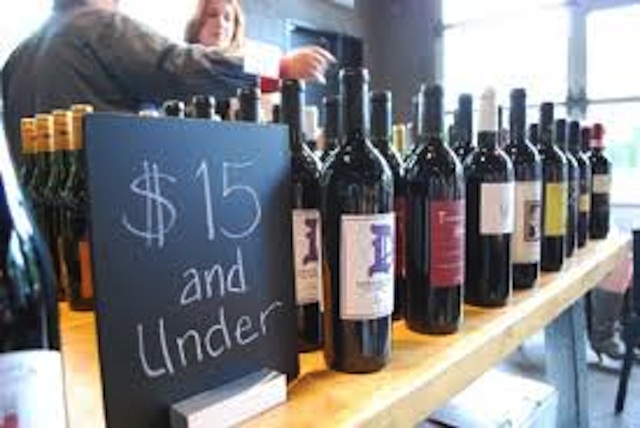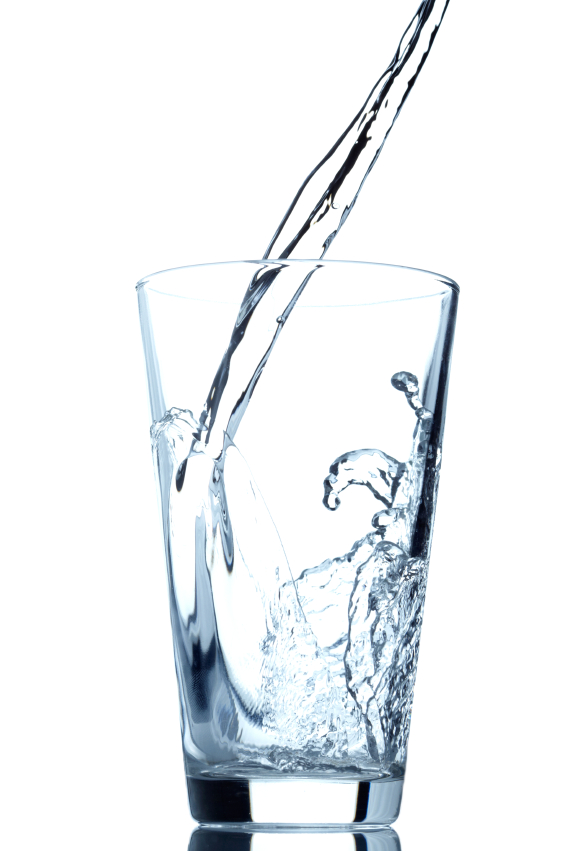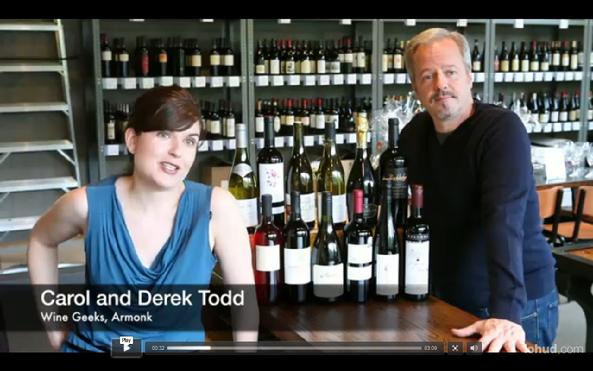Fall Survival Checklist: How to avoid wine headaches

Do you find yourself going to the wine shop and asking more questions about headaches than varietals? You’re not alone. Wine Geeks Armonk’s sommelier Derek Todd says he gets more questions about health issues than wine pairings or selections. “Sometimes I have to check my sign out front to see if it says Mount Kisco Medical Group,” he joked. We sat down with Derek in hopes he could explain it all for us. Here’s what he had to say:
What To Do: Is this an age thing? Am I getting too old?
Derek: No, I get questions from people of all ages.
What To Do: What’s going on?

Derek Todd of Wine Geeks Armonk talks about how to avoid wine headaches
Derek: Well, to a certain extent, it’s a product of the age we live in. We are all exposed to so many environmental issues that make us more sensitive. But it’s also, I think, related to how so many wines, especially from big batch wine producers, are made today.
What To Do: How do you know what to watch for?
Derek: Well you don’t. But buying wine is just like food. There’s a big farm to table movement in this country – not just because everyone wants to support local farmers – people want to know what’s in their food. You should approach wine the same way.
Big-batch producers buy grapes from many suppliers. To make sure all the wine tastes the same they have to manipulate it with sugars, commercial yeasts, chemicals, and flavorings. Every time you add a product, if you are dealing with health issues, the harder it is to figure out what’s bothering you. We prefer dealing with winemakers who don’t add a lot of stuff to their wine. Everything you need to make wine is in the grape. The yeasts. The sugar. The yeast eats the sugar and you have wine. Many big batch producers add commercial yeasts with flavorings to their wines – again more products that unnecessarily complicates the process. Most wines we sell use ambient yeasts that are present on the grapes themselves. We’re more comfortable with that. We like to know what’s in the wines we sell and we feel the less additives and the less manipulation the better.
What To Do: So, if you buy organic broccoli you should buy organic wine.
 Derek: Well, if a vineyard uses pesticides on their grapes it’s going to be in your wine. So “yes” to organic wine. But, that’s not our guiding principle. We just like to know what’s in the bottle. That usually means small-batch wines – as in 10,000 cases or less. We carry a lot of sustainably produced wines, which means the producer is making a good faith effort but may fall short of organic. Not everything at your local farmer’s market is organic but you know what the farmer is doing to your food. You want the same with wine. Many European wineries have been organic for years but they don’t market it because at one time organic wine was considered a bad thing.
Derek: Well, if a vineyard uses pesticides on their grapes it’s going to be in your wine. So “yes” to organic wine. But, that’s not our guiding principle. We just like to know what’s in the bottle. That usually means small-batch wines – as in 10,000 cases or less. We carry a lot of sustainably produced wines, which means the producer is making a good faith effort but may fall short of organic. Not everything at your local farmer’s market is organic but you know what the farmer is doing to your food. You want the same with wine. Many European wineries have been organic for years but they don’t market it because at one time organic wine was considered a bad thing.
What To Do: Go figure.
Derek: Strange world, right? Fortunately, if you enjoy the pleasurable stress relief you get from a couple of glasses of wine (or you just like how it tastes) with a little knowledge you can share a bottle with your spouse or friends on a Saturday night without it making you feel bad.
What To Do: What about wine headaches? Is that from the sulfites?
Derek: No, it’s not the sulfites. That’s an urban myth. Sulfites are present on all naturally grown grapes. And 95% of wine makers finish with sulfur dioxide to kill any harmful bacteria that may be on the grapes. You need to do this. It’s not bad but it is over-used by the big producers. Even organic wine producers do it. They just use less. But it needs to be done.
 What To Do: What’s up with those sulfite labels on wine?
What To Do: What’s up with those sulfite labels on wine?
Derek: The sulfite labels on wine are for asthma sufferers not headaches. There is a small percentage of the population (about 1% according to the FDA) who are sensitive to sulfites and it can be very serious. But sulfite sensitivity usually has bronchial implications. If you’re not sure, ask your doctor.
There are sulfite-free wines. But they go through a process to remove the sulfites. That adds more chemicals to the mix – which may or may not be bad – but you don’t have to go there because you got a headache from your last glass of wine. If you can eat a dried apricot or a slice of salami (both of which have higher levels of sulfites than wine) then you are not allergic to sulfites.
What To Do: I’ve also read that histamines in wine can cause headaches.
Derek: There’s nothing definitive in any medical study tying anything beyond dehydration to wine headaches but there is a growing chorus of people who believe that histamine and tyramine that are naturally present in wines may cause headaches. They both dilate blood vessels and for people with high blood pressure, in the case of tyramine, or who have trouble metabolizing histamine they may be issues.
What To Do: So just take a Claritin before you drink a glass of wine and you’re good.
Derek: I’m actually going to refer you to the Mount Kisco Medical Group on that one. Because Claritin makes some people drowsy. And it gives some people headaches. So talk to your doctor, please. That said, red wines generally have more histamine than sparkling wines and white wines have the least. But if histamines in wines are giving you headaches than so are aged cheeses, cured meats and citrus fruits. So don’t combine.
What To Do: What does cause the headaches?
 Derek: The simple answer for most headaches and for most people is dehydration. That said, there is a correlation between tannins and migraines. Not regular headaches – migraines. So if you suffer from this you will know it right away and you should go right to your doctor. Tannins are naturally occurring compounds present in grape skins, seeds and stems. Cabernet Sauvignon is a highly tannic wine. Malbecs are also high in tannins. If you already know you suffer from migraines – stay away from the Cabs and Malbecs. You can react to certain yeast strains in a bottle of wine with a sinus headache. If a bottle keeps giving you sinus headaches you might be reacting to that particular yeast strain so move on to a different producer. The same is true for regular headaches. If a Merlot gave you a headache. Don’t rule out Merlots. Just try one from a different winery. It’s the producer, not the varietal.
Derek: The simple answer for most headaches and for most people is dehydration. That said, there is a correlation between tannins and migraines. Not regular headaches – migraines. So if you suffer from this you will know it right away and you should go right to your doctor. Tannins are naturally occurring compounds present in grape skins, seeds and stems. Cabernet Sauvignon is a highly tannic wine. Malbecs are also high in tannins. If you already know you suffer from migraines – stay away from the Cabs and Malbecs. You can react to certain yeast strains in a bottle of wine with a sinus headache. If a bottle keeps giving you sinus headaches you might be reacting to that particular yeast strain so move on to a different producer. The same is true for regular headaches. If a Merlot gave you a headache. Don’t rule out Merlots. Just try one from a different winery. It’s the producer, not the varietal.
What To Do: So drink lots of water.
Derek: Drink lots of water. That’s really the simple cure. Drink water before, during and after. It’s all about keeping well hydrated. Don’t drink on an empty stomach. And of course, drink in moderation. When you’re talking about the average headache … water, water, water. The more wine you drink the more dehydrated you get if you don’t rehydrate. Any alcoholic drink can give you a headache if you drink too much, don’t stay hydrated or load up with too much sugar. So when you fill up your wine glass. Fill up your water glass too.
What To Do: OK then … what’s a good wine to pair with water?
 Derek: They all go well with water. But if you’re having fish tacos with a creamy lime guacamole and cabbage slaw I would recommend a Sauvignon Blanc. Preferably from a small batch producer.
Derek: They all go well with water. But if you’re having fish tacos with a creamy lime guacamole and cabbage slaw I would recommend a Sauvignon Blanc. Preferably from a small batch producer.
Derek Todd was the founding Wine Director at three-star restaurant Blue Hill at Stone Barns on the Rockefeller Estate in Pocantico Hills. His wine list received two back to back “Best of Awards of Excellence” from Wine Spectator Magazine. He runs Wine Geeks with his wife Carol, formerly of Union Square Cafe. Carol is also a New York City actress who recently debuted Off-Broadway in Jack Canfora’s Jericho at the 59E59 Theatre. (Wine Geeks, 559 Main St., Armonk, 914.273.WINE)
SIGN UP FOR THE WHAT TO DO eLETTER written for townies, foodies, culture vultures and locavores.
Random Posts of Culinary Interest


















